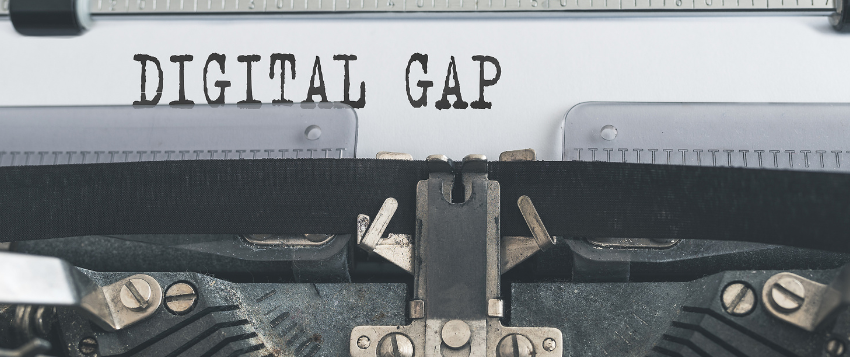Across Africa, women are more likely than men to become entrepreneurs. Not because they have more capital or freedom, but often because they have no other choice. For many, entrepreneurship is not a passion project but survival. Yet, despite their grit, resourcefulness, and impact, African women entrepreneurs remain vastly underserved by the systems meant to support them.
According to the World Bank, Africa has the highest rate of female entrepreneurship globally, with women making up nearly 58% of the continent’s self-employed population. But there’s a catch: the majority are stuck in the informal sector, battling structural inequality, cultural bias, and systemic neglect. If we want Africa to rise, we must invest in the very women already doing the heavy lifting.
Here are five of the most pressing challenges African women entrepreneurs face and the strategies that can help overcome them.
1. Access to Finance

African women are less likely to be approved for loans, and when they are, the amounts are often far smaller than what their male counterparts receive. Despite running 40% of small and medium-sized enterprises (SMEs), women receive only about 3% of venture capital funding on the continent. In countries like Uganda, women own 39% of businesses but receive just 9% of formal financing.
Breaking the Financial Glass Ceiling
The solution is not charity but structural change. Financial institutions need to design gender-smart financing models that recognise the strength and reliability of women-led businesses. Governments and development banks can step in with credit guarantee schemes, reducing the risk for lenders who might otherwise shy away. And where the formal system drags its feet, innovation fills the gap: mobile microloans, crowdfunding, and community savings groups are already providing women with flexible, collateral-free capital that fuels growth.
The impact of levelling the financial playing field extends far beyond individual entrepreneurs. When women are empowered economically, their success ripples through households and communities. Research shows that women reinvest up to 90% of their income back into their families, compared to just 30–40% for men. In other words, financing women doesn’t just grow businesses it transforms societies.
2. The Digital Divide
In the modern marketplace, being offline is almost the same as being invisible. Yet across Africa, women remain at a disadvantage. They are 15% less likely than men to use mobile internet, and almost half of women entrepreneurs (45%) lack reliable access due to prohibitively high data costs and patchy infrastructure. For a woman trying to run a business, this isn’t a minor inconvenience it’s a barrier that locks her out of e-commerce platforms, digital banking, and even the simple act of marketing her products online.
Closing this gap requires more than just goodwill, it calls for intentional investment. Affordable and subsidised data packages designed specifically for women-led enterprises can ease the financial burden. Community Wi-Fi zones and innovation hubs, particularly in rural and underserved areas, can open up spaces where women can connect, learn, and trade without limitation. And because access alone isn’t enough, digital skills training through NGOs and edtech partners ensures women can fully participate in the digital economy, not just watch from the sidelines.
Bridging this divide isn’t a luxury; it’s the key to scaling. When African women entrepreneurs step confidently into digital spaces, they don’t just grow their businesses, they expand the future of Africa’s economy.

3. Ownership, Land Rights, and Legal Barriers
For many African women, the land they farm or the stalls they trade from exist in a sort of legal limbo. Even though women are central to agriculture and informal enterprise, their ability to own, control, or formally register the land/property they rely on is often severely limited. According to the FAO, women are less likely than men to have formal documentation for land, and even when legal frameworks exist, implementation is weak or inconsistent.
This lack of secure tenure isn’t just about formality; it affects everyday decisions. Without legal proof of ownership or control, women can’t easily use land as collateral, which in turn limits access to credit, investment, or upgrading infrastructure. It also dampens their incentive to invest in productivity, because the risk of dispute or dispossession is higher.
4. Exclusion from High-Value Networks and Markets
No business grows in isolation and for women entrepreneurs in Africa, gaining access to meaningful networks or high-value procurement opportunities remains a massive hurdle. Many women-led businesses are excluded from government contracts and corporate procurement pipelines simply because of lack of awareness, bureaucratic complexity, or digital skills gaps. For instance, the Graça Machel Trust notes that women entrepreneurs are still underrepresented in public procurement despite the huge potential for growth in that area.
On the flip side, when women do enter these networks or get matched with procurement opportunities, the impact is often profound not only for their own businesses but for broader community-driven economic growth.
5. Education and Skills Gaps

Behind every thriving business is a foundation of knowledge but for many African women, that foundation has too many cracks. Sub-Saharan Africa now has around 98 million children and adolescents aged 6–18 out of school, making it the region with the highest out-of-school population in the world. The situation worsens as girls grow older: more than one-fifth of children aged 6–11 are out of school, one-third of those aged 12–14, and nearly 60% of young people aged 15–17 do not attend.
This lack of access shadows women into adulthood, reducing opportunities for higher learning, financial literacy, and digital or leadership training. Many women start businesses out of necessity, often in the informal sector, juggling survival with ambition. They are creative and resilient, but without structured training and mentorship, scaling those ventures into sustainable enterprises becomes a steep climb. Education in this
From Barriers to Breakthroughs: Her Potential
This is where the Her Potential Entrepreneurship Programme steps in. Aimed for women ready to move from survival mode to sustainable growth, it provides practical business skills, real-world mentorship, and a peer community that inspires and supports every step of the journey. At its core, it’s about equipping women with the tools, confidence, and networks to turn ideas into enterprises that create lasting impact.
And the timing couldn’t be better. The next cohort begins in October 2025, with the flexibility to join fully online from anywhere in Africa, or to attend in-contact sessions in Nairobi, Kenya for those who prefer face-to-face learning.
When we invest in women through initiatives like Her Potential, we do more than empower entrepreneurs, we spark change that uplifts families, strengthens communities, and builds a more inclusive African economy.







